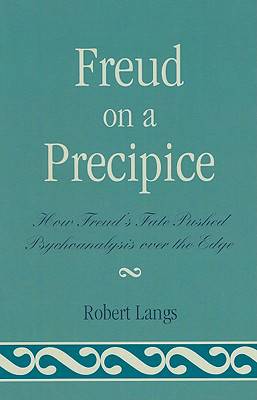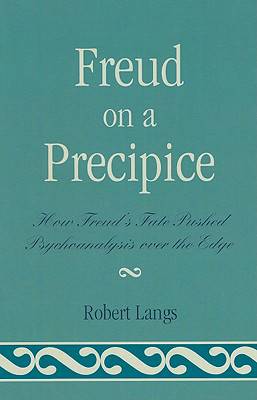
- Retrait gratuit dans votre magasin Club
- 7.000.000 titres dans notre catalogue
- Payer en toute sécurité
- Toujours un magasin près de chez vous
- Retrait gratuit dans votre magasin Club
- 7.000.0000 titres dans notre catalogue
- Payer en toute sécurité
- Toujours un magasin près de chez vous
Freud on a Precipice
How Freud's Fate Pushed Psychoanalysis Over the Edge
Robert Langs
Livre relié | Anglais
166,45 €
+ 332 points
Description
Freud on a Precipice is an exploration of eight likely early-life traumas experienced by Sigmund Freud and an effort to show how their unconscious processing adversely affected the psychoanalytic theory he forged beginning in the late 1890's. Using a new method to decode key narratives in Freud's opus, Langs makes a compelling argument for the probability that Freud was never sure of the identity of his biological father. The book also offers a fresh study of paradigms, paradigm shifts, and archetypes.
Spécifications
Parties prenantes
- Auteur(s) :
- Editeur:
Contenu
- Nombre de pages :
- 180
- Langue:
- Anglais
Caractéristiques
- EAN:
- 9780765706003
- Date de parution :
- 26-10-09
- Format:
- Livre relié
- Format numérique:
- Genaaid
- Dimensions :
- 157 mm x 229 mm
- Poids :
- 430 g

Les avis
Nous publions uniquement les avis qui respectent les conditions requises. Consultez nos conditions pour les avis.






